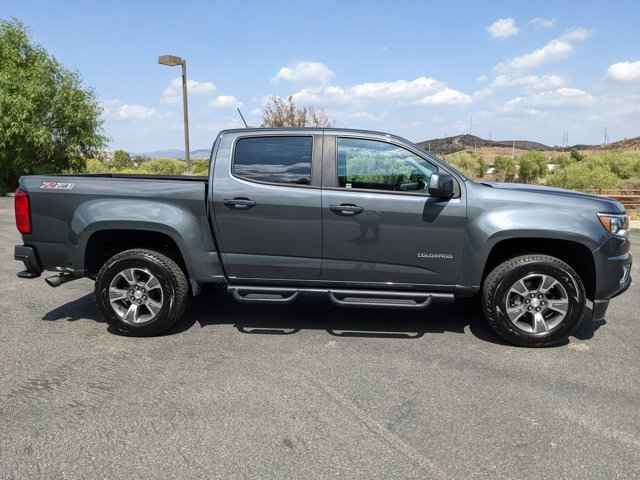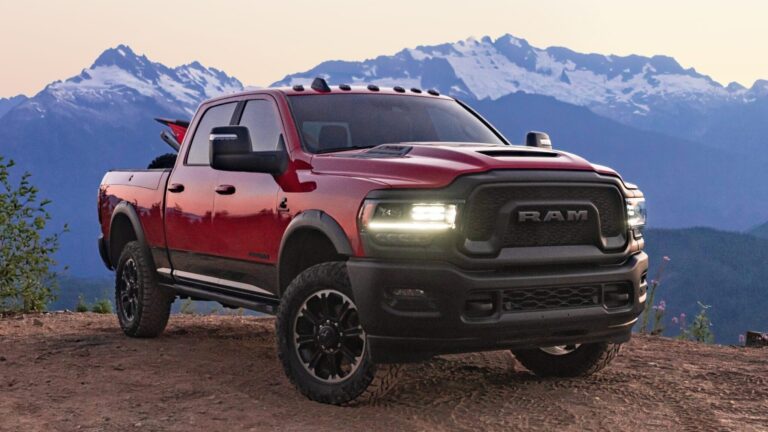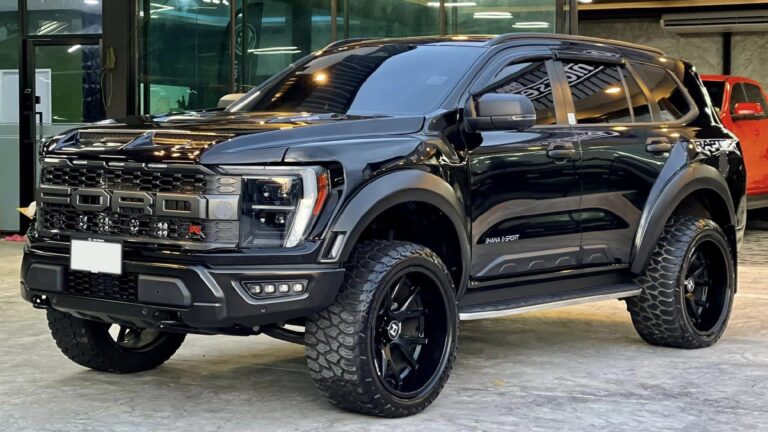Diesel Trucks For Sale: Your Ultimate Guide to Buying the Right Rig
Diesel Trucks For Sale: Your Ultimate Guide to Buying the Right Rig cars.truckstrend.com
The rumble of a powerful engine, the promise of immense towing capacity, and the legendary durability – these are just a few reasons why diesel trucks command a unique appeal in the automotive market. When you see "Diesel Trucks For Sale," it signifies more than just a vehicle; it often points to a workhorse built for serious tasks, a reliable companion for long hauls, or a robust platform for customization. Whether you’re a contractor needing to pull heavy equipment, a recreational enthusiast towing an RV, or simply someone who appreciates the raw power and longevity, understanding the ins and outs of buying a diesel truck is crucial. This comprehensive guide will navigate you through the world of diesel trucks, helping you make an informed and confident purchase.
Why Choose a Diesel Truck? Unpacking the Advantages
Diesel Trucks For Sale: Your Ultimate Guide to Buying the Right Rig
Before diving into the market, it’s essential to understand why diesel trucks are so highly sought after. Their benefits are distinct and often unmatched by their gasoline counterparts:
- Superior Torque and Towing Capacity: This is the hallmark of a diesel engine. Diesels produce significantly more torque at lower RPMs than gasoline engines, making them ideal for pulling heavy loads with ease. If you’re regularly towing large trailers, boats, or equipment, a diesel truck is almost a necessity.
- Exceptional Durability and Longevity: Diesel engines are built to withstand higher compression ratios and more demanding operating conditions. This robust construction translates into a longer lifespan, with many diesel engines known to last for hundreds of thousands, or even a million, miles with proper maintenance.
- Better Fuel Economy (Under Load): While diesel fuel might be more expensive per gallon, diesel engines are inherently more efficient. When working hard – towing or hauling heavy loads – a diesel truck will often achieve better miles per gallon than a comparable gasoline truck, leading to lower operating costs over time.
- Strong Resale Value: Due to their durability, longevity, and high demand for towing and commercial applications, diesel trucks tend to hold their value exceptionally well, often depreciating slower than gasoline models.
- Reliability for Commercial Use: For businesses that depend on their vehicles day in and day out, the reliability and low-end grunt of a diesel engine are invaluable, minimizing downtime and maximizing productivity.

Types of Diesel Trucks For Sale: Finding Your Fit
The market for diesel trucks is diverse, ranging from daily drivers to heavy-duty commercial rigs. Understanding the categories will help narrow down your search:
- Light-Duty Diesel Trucks: These are typically half-ton (1500/150/F-150) or light-duty three-quarter-ton (2500/250/F-250) trucks equipped with smaller diesel engines (e.g., Ram 1500 EcoDiesel, Chevy Colorado/GMC Canyon Duramax, Ford F-150 Power Stroke). They offer a good balance of fuel economy, daily drivability, and respectable towing capabilities for personal use.
- Medium-Duty Diesel Trucks: Often three-quarter-ton (2500/250/F-250) and one-ton (3500/350/F-350) trucks, these are the workhorses of the consumer market. Equipped with powerful engines like the Cummins, Duramax, or Power Stroke, they are designed for serious towing (fifth-wheel, gooseneck) and heavy hauling.
- Heavy-Duty & Commercial Diesel Trucks: These include chassis cabs, medium-duty commercial trucks (e.g., Ford F-450/550/650, Ram 4500/5500, International, Freightliner), and Class 8 semi-trucks. They are built for extreme commercial applications, often customized with specialized bodies for specific industries.
- Used vs. New Diesel Trucks: Each offers distinct advantages. New trucks come with warranties, the latest technology, and no prior wear and tear. Used trucks offer significant cost savings and a wider selection of older, often simpler, models.
Key Considerations When Buying a Diesel Truck
Purchasing a diesel truck is a significant investment. Careful consideration of several factors will ensure you make the right choice:
- Define Your Purpose: What will the truck primarily be used for? Daily commuting, occasional towing, heavy commercial hauling, off-roading? Your intended use will dictate the necessary towing capacity, bed size, cab configuration, and engine type.
- Set a Realistic Budget: This includes not just the purchase price but also ongoing costs. Diesel trucks typically have higher purchase prices than comparable gasoline models. Factor in fuel costs (diesel fuel is often more expensive), insurance, and potentially higher maintenance costs due to specialized parts and labor.
- New vs. Used: Weighing the Pros and Cons:
- New: Full warranty, latest technology, no hidden issues, often better financing options. Higher initial cost, rapid depreciation in the first few years.
- Used: Significant cost savings, slower depreciation after the initial drop, wider selection, potentially simpler emission systems on older models. Risk of hidden issues, potentially no warranty, higher interest rates on financing.
- Mileage and Condition (for Used Trucks): For used diesels, mileage is less critical than maintenance history. A well-maintained diesel with 200,000 miles can be a better buy than one with 100,000 miles that’s been neglected. Look for signs of wear and tear, rust, and modifications.
- Engine Type and Transmission: Research the specific engine (Cummins, Duramax, Power Stroke, etc.) and transmission (Allison, Aisin, Ford TorqShift, etc.) in the models you’re considering. Each has its own reputation for reliability, power output, and common issues.
- Maintenance History: This is paramount for any used diesel truck. Ask for service records to verify regular oil changes, filter replacements, and any major repairs. A lack of records is a major red flag.
- Emissions Systems (DPF, DEF, EGR): Modern diesel trucks are equipped with complex emissions systems (Diesel Particulate Filter, Diesel Exhaust Fluid, Exhaust Gas Recirculation) to meet environmental regulations. While effective, these systems require maintenance and can be costly to repair if they fail. Older diesels (pre-2007, and especially pre-2010) may have simpler or no DEF systems, which can appeal to some buyers, but they won’t meet current emissions standards in all areas.
- Test Drive and Pre-Purchase Inspection (PPI): Always test drive the truck, paying attention to engine noise, transmission shifts, braking, and steering. More importantly, invest in a professional pre-purchase inspection by a mechanic specializing in diesel engines. This can uncover hidden problems that could save you thousands down the line.
Where to Find Diesel Trucks For Sale
The market offers numerous avenues to find your next diesel rig:
- Authorized Dealerships: New and certified pre-owned trucks come with warranties and financing options. Dealerships often have specialized service departments.
- Independent Used Truck Dealerships: A wide variety of makes and models, often with competitive pricing. Be extra diligent with inspections.
- Online Marketplaces: Websites like AutoTrader, CarGurus, Cars.com, and specific truck classifieds (e.g., CommercialTruckTrader, TruckPaper for heavy-duty) offer vast selections from both dealers and private sellers.
- Private Sellers: Often the best deals can be found here, but they come with increased risk and require more due diligence on your part regarding history and condition.
- Auctions: Government, fleet, and public auctions can offer low prices, but they are typically "as-is, where-is" sales with no guarantees. Best for experienced buyers or those with a mechanic on standby.
The Buying Process: A Step-by-Step Guide
- Research and Budgeting: Define your needs, research models that fit, and establish a clear budget, including purchase price, insurance, and potential maintenance.
- Locate Potential Trucks: Use online resources, visit dealerships, and check local listings.
- Initial Screening: Review photos, descriptions, and CARFAX/AutoCheck reports. Discard trucks with major red flags.
- First Look and Test Drive: Physically inspect the truck. Check for rust, fluid leaks, tire wear, and interior condition. During the test drive, listen for unusual noises, feel for smooth shifts, and test all functions.
- Pre-Purchase Inspection (PPI): Crucial step. Have an independent, qualified diesel mechanic perform a thorough inspection. This is money well spent.
- Negotiation: Armed with the PPI results and market research, negotiate the price. Be prepared to walk away if the deal isn’t right.
- Financing and Paperwork: Secure financing if needed. Carefully review all purchase agreements, titles, and registration documents before signing.
- Insurance and Registration: Ensure you have adequate insurance coverage before driving the truck home. Complete the registration process promptly.
Common Challenges and Solutions
While the benefits are clear, owning a diesel truck comes with its own set of challenges:
- Higher Initial Cost: Diesels typically cost more upfront.
- Solution: Consider a well-maintained used diesel, or explore financing options that align with your budget.
- More Complex Maintenance & Specialized Mechanics: Modern diesels require specialized tools and knowledge.
- Solution: Factor higher maintenance costs into your budget. Find a reputable diesel mechanic or learn basic DIY maintenance if you’re comfortable.
- Emissions System Issues: DPF, DEF, and EGR systems can be costly to repair if they malfunction, especially with inadequate maintenance.
- Solution: Follow manufacturer-recommended maintenance schedules for these systems. Understand their operation and common symptoms of failure.
- Fuel Availability/Cost: Diesel fuel can be less readily available in some areas and often more expensive than gasoline.
- Solution: Plan long trips around diesel fuel stations. Factor fuel costs into your operational budget.
Tips for a Successful Diesel Truck Purchase
- Don’t Rush: Take your time. The right truck will come along.
- Get It Inspected: A PPI is non-negotiable for used trucks.
- Understand Total Cost of Ownership: Look beyond the sticker price. Factor in fuel, insurance, and maintenance.
- Research Specific Models: Not all diesel engines or transmissions are created equal. Understand the reputation of the specific powertrain in the truck you’re considering.
- Negotiate Confidently: Be informed about market values and any issues found during inspection.
- Consider Your Climate: Cold weather can impact diesel starting and require block heaters.
Illustrative Diesel Truck Price Ranges
Please note: These prices are highly variable and intended as a general guide. Actual prices depend heavily on make, model, year, mileage, condition, trim level, region, and current market demand.
| Category | Typical New Price Range (USD) | Typical Used Price Range (USD) | Key Factors Influencing Price |
|---|---|---|---|
| Light-Duty (1500/F-150 Diesel) | $45,000 – $75,000+ | $25,000 – $55,000+ | Engine size, trim level, 4×4, mileage, condition, emissions compliance |
| Medium-Duty (2500/3500/F-250/F-350 Diesel) | $60,000 – $100,000+ | $30,000 – $75,000+ | Engine (Cummins, Duramax, Power Stroke), transmission, towing package, trim, age |
| Heavy-Duty Chassis Cab (4500/5500/F-450/F-550 Diesel) | $70,000 – $120,000+ | $40,000 – $90,000+ | Application-specific upfitting, 4×4, engine, mileage, commercial history |
| Commercial (Used Class 6/7/8 Diesel) | N/A (Highly Specialized) | $20,000 – $150,000+ | Engine hours, mileage, specific application (dump, flatbed, semi), fleet maintenance records |
Frequently Asked Questions (FAQ) About Diesel Trucks
Q1: Are diesel trucks more expensive to maintain than gasoline trucks?
A1: Generally, yes. While they may require less frequent major overhauls due to their durability, routine maintenance can be more costly due to specialized parts (e.g., injectors, turbochargers) and higher labor rates for diesel mechanics. Emissions system components can also be expensive to replace.
Q2: Do diesel trucks get better fuel economy?
A2: Diesel engines are inherently more fuel-efficient than gasoline engines. While the difference might be negligible in light-duty daily driving, it becomes significant when towing or hauling heavy loads, where diesel trucks typically offer better MPG.
Q3: What’s the typical lifespan of a diesel engine?
A3: With proper maintenance, many diesel engines are known to last 300,000 to 500,000 miles or more. Some heavy-duty commercial diesels can exceed a million miles. Longevity heavily depends on consistent maintenance and how the truck was used.
Q4: What is DEF (Diesel Exhaust Fluid)?
A4: DEF is a non-toxic liquid used in Selective Catalytic Reduction (SCR) systems in modern diesel trucks (typically 2010 and newer). It’s injected into the exhaust stream to convert harmful nitrogen oxides (NOx) into harmless nitrogen and water, reducing emissions. The truck will not run without DEF.
Q5: Can I use biodiesel in my diesel truck?
A5: Many modern diesel trucks are compatible with biodiesel blends (e.g., B5 or B20). Always check your vehicle’s owner’s manual for the maximum biodiesel blend percentage recommended by the manufacturer to avoid potential damage or voiding your warranty.
Q6: Is it harder to find parts for older diesel trucks?
A6: For popular makes and models (e.g., Ford Power Stroke, Ram Cummins, Chevy Duramax), parts availability is generally good, even for older models. However, some very specific or obscure parts might be harder to source, and aftermarket options may vary.
Conclusion
The market for "Diesel Trucks For Sale" offers a robust selection for buyers seeking unparalleled power, impressive towing capabilities, and legendary durability. While the initial investment and maintenance considerations may be higher than gasoline counterparts, the long-term benefits, including longevity, fuel efficiency under load, and strong resale value, often justify the cost. By thoroughly researching your needs, understanding the different types of trucks available, conducting diligent inspections, and approaching the buying process with a clear strategy, you can confidently navigate the market and drive away with a diesel truck that will serve you reliably for years to come. Your ultimate workhorse or adventure companion awaits!








